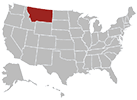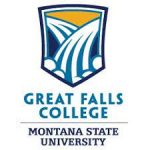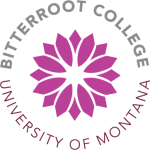
Becoming a dental assistant in Montana gives you the opportunity to enter dentistry without spending six to eight years in school.
On the other hand, you can use your DA experience to someday serve as a licensed dentist after completing the necessary training.
Page Navigation
- Licensing Requirements to Become a Dental Assistant in Montana
- 5 Dental Assistant Schools in Montana
- Salary
- Frequently Asked Questions
- What is the employment outlook for dental assistants in Montana?
- What is the difference between a dental assistant and a dental hygienist?
- What advancement opportunities does the dental assistant have?
- What personal qualities must a Montana dental assistant have?
- What are the most important dental assisting skills to have?
Licensing Requirements to Become a Dental Assistant in Montana
You can operate as a Dental Auxiliary in Montana if you have received training from a school approved by the Commission on Dental Accreditation (CODA).
Otherwise, you’d have to either undergo training directly from a licensed dentist or complete coursework that the Montana Board of Dentistry approves.
This position puts you in a career where you would perform duties that you can train for in less than a year, such as scheduling appointments or preparing an instrument tray for a dentist.
Before you take X-rays on patients or operate any type of radiographic imaging machine, you must earn a Radiation Health and Safety (RHS) certificate.
In addition, you should already have obtained your Certified Dental Assistant (CDA) credential before performing X-rays.
It is also necessary for all states, including Montana, to earn the Infection Control (ICE) certificate, so keep that in mind when looking for a school.
5 Dental Assistant Schools in Montana
Great Falls College (Montana State University)

Great Falls offers an 11-month Dental Assistant certificate program.
You may need to complete some college prerequisites before you enroll in this coursework. Contact admissions or academic advising for more information about that.
You will receive training that meets CODA standards.
In addition, this instruction enables DANB exam readiness.
This starts with background information about how the head, neck, teeth, and mouth work.
Then, you will receive classroom training and hands-on practice in preventative dentistry, radiology, and disease prevention.
Salish Kootenai College

Salish offers a Dental Assisting Endorsement program.
It is only 23 credits.
If you decide to take 12 credits per semester, you could finish it in about a year.
Courses you would take include introductions to chairside assisting dental anatomy preventive dentistry and radiology.
The instruction you receive would be divided into lectures and lab time.
300 lab hours are required before you receive this program’s Certificate Of Completion.
Ask the school or get information from the dentists you are studying under about state-required certification exams.
Charter College in Missoula
Charter College in western Montana offers a blended curriculum that accommodates managing families, work, and other obligations.
Here you will participate in both on-campus and online learning, and you receive the necessary hands-on experience.
Before you graduate from this certificate program, you will complete 180 externship hours at a local dentist’s office or clinic.
You will learn lab clinical and chairside assisting techniques.
Mandatory infection control and radiology (X-ray) certification training also are included.
Bozeman Dental Assisting School
You can complete the Bozeman dental assisting hands-on training within about 12 weeks.
They offer a flexible scheduling and payment plan that aligns with your budget and priorities.
It focuses on the registered dental assistant (RDA), requirements.
This training closely resembles the DANB CDA certification training protocol.
You will have to clarify with Bozeman what classes you should take to qualify for the CDA.
Either way, you will receive help with finding a job, which you have an excellent chance of accomplishing before you graduate.
What is more, your training would include mandatory certification topics such as infection control or radiology training.
Your in-person clinical time will happen under the supervision of a licensed Montana dentist.
Bitterroot College (University of Montana)

This might provide you with the most feasible way to obtain the necessary dental assistant certifications within the Montana University System.
Bitterroot college has a workforce training program that does not require college admission.
This Bitterroot Dental Assisting coursework will prepare you for your RHS CDA and Infection Control (ICE) exams.
They also have training that makes you proficient in chairside assisting.
If you want, you could also complete the General Chairside (GC) exam also offered by DANB after completing this training.
Dental Assistant Schools in Montana – Summary Table
Top 5 Schools in Montana
| School Name | Address |
|---|---|
| Great Falls College (Montana State University) | 2100 16th Ave S, Great Falls, MT 59405 |
| Salish Kootenai College | 58138 US-93, Pablo, MT 59855 |
| Charter College in Missoula | 1930 Brooks St, Missoula, MT 59801 |
| Bozeman Dental Assisting School | 2018 Stadium Dr, Bozeman, MT 59715 |
| Bitterroot College (University of Montana) | 103 S 9th St, Hamilton, MT 59840 |
Salary
A 2022 salary update reveals that a Montana dental assistant can make an average yearly salary of $39,993.
Annual earnings in the state usually range from $32,810 to $41,047.
You could increase your earnings to more than $44,738 if you continue your education and gain additional experience.
Look for jobs in Billings, Belgrade, Bozeman, Great Falls, or Missoula.
Annual Salary Range:Average Salary of Dental Assistants in Montana
| City Name | Salary |
|---|---|
| Billings | $39,082 |
| Missoula | $33,729 |
| Great Falls | $35,382 |
| Butte-Silver Bow | $33,729 |
| Bozeman | $33,729 |
| Helena | $34,341 |
| Kalispell | $35,837 |
| Havre | $34,769 |
| Anaconda-Deer Lodge County | $33,729 |
| Belgrade | $33,729 |
Regional Salary in Montana
| Region | Employed | Avg. Annual Salary | Avg. Hourly Pay | Top 10% Annual Salary | Bottom 10% Annual Salary |
|---|---|---|---|---|---|
| Billings, MT | 320 | $43,910 | $21.11 | $56,060 | $34,820 |
| Great Falls, MT | 110 | $41,700 | $20.05 | $55,570 | $29,930 |
| Missoula, MT | 190 | $43,260 | $20.8 | $51,740 | $33,340 |
* Employment conditions in your area may vary.
Frequently Asked Questions
What is the employment outlook for dental assistants in Montana?
The Bureau of Labor Statistics predicts that the national job growth for dental assistants will increase by 11% until 2030.
You could possibly end up in a job within less than a year of graduating from a certificate program in Montana.
What is the difference between a dental assistant and a dental hygienist?
Both occupations perform similar duties.
However, a hygienist focuses more on examining patients and providing diagnosis and treatment.
They have more advanced preventative oral hygiene and gingivitis prevention and treatment knowledge than a dental assistant, for example.
However, training as a dental assistant first may help you find a job soon.
What advancement opportunities does the dental assistant have?
That is up to you.
You could continue on under the title of a dental assistant and keep earning more advanced certificates.
If you do stay working as a dental assistant, you will always make a living wage with only a year or two of schooling.
However, you could use your time as a dental assistant to prepare for work as a hygienist or as a licensed dentist.
What personal qualities must a Montana dental assistant have?
You have to be able to move quickly while still providing comfort and compassion to patients who seem anxious to see the dentist.
If you remain calm, your relaxed frequency will put patients at ease.
What are the most important dental assisting skills to have?
Communication will always remain the number one important non-technical skill.
You also must have organizational skills and the ability to multitask in a fast-paced office and clinical environment.




